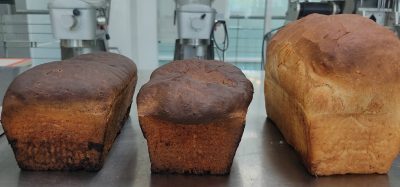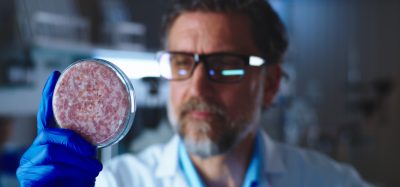Securing the future of food through collaboration and innovation
- Like
- Digg
- Del
- Tumblr
- VKontakte
- Buffer
- Love This
- Odnoklassniki
- Meneame
- Blogger
- Amazon
- Yahoo Mail
- Gmail
- AOL
- Newsvine
- HackerNews
- Evernote
- MySpace
- Mail.ru
- Viadeo
- Line
- Comments
- Yummly
- SMS
- Viber
- Telegram
- Subscribe
- Skype
- Facebook Messenger
- Kakao
- LiveJournal
- Yammer
- Edgar
- Fintel
- Mix
- Instapaper
- Copy Link
Posted: 30 October 2019 | Swee Lee | No comments yet
The International Food and Water Research Center (IFWRC) gathers experts in the food, water and environmental industries to address key industry challenges. Here, Swee Lee, Director of IFWRC, explores some of its main aims and projects.


The food and beverage industry is growing rapidly, with consumers responding to and driving trends with increasing speed. By 2050, the global population will increase by 28 percent, with demand for food 60-98 percent higher than it is today.
The International Food and Water Research Center (IFWRC) in Singapore was opened to advance innovative research in the food and water industries by creating a collaborative laboratory facility for both industry and academia to solve their mutual challenges. One of the primary advantages that IFWRC offers is access to state-of-the-art instrumentation, and its Scientific Advisory Panel (SAP), comprised of experts from academia and industry, is responsible for selecting which projects should go ahead, prioritising those that are viewed to contribute to wider industry goals.
Key trends and challenges
Future-proofing the world’s food and water supply is a high priority, and recent projects at the IFWRC have investigated solutions to sustainability issues, such as supply chain inefficiencies leading to significant food waste across the globe.
Manufacturers and technology companies are looking for methods to repurpose food waste into new products, such as Okara, which is developed from soybean waste. Sophisticated quadrupole time-of-flight (QTOF) mass spectrometry (MS) technology at the IFWRC is enabling researchers to conduct non-targeted analysis on Okara prior to fermentation, to identify compounds of interest for progression in the fermentation process.
Researchers at Waseda University, Japan, and Nanyang Technological University, Singapore, have developed this work in collaboration with scientists at the IFWRC, investigating the potential of fermented Okara as an anti-diabetes food using ultra-performance liquid chromatography tandem MS (UPLC-MS/MS) for metabolomics analyses. This collaborative approach allows researchers to corroborate their findings to reach conclusions with wide-reaching benefits.
The core of innovation
Investing in safe food helps not only a country’s population, but its economy. Developing an export market for food enables farmers and consumers further down the supply chain to benefit from the export business, making food an engine of economic development.
Asia has a substantial focus on economic development and Singapore is considered a central hub of innovation in Asia. The rapid growth and investment from the Singapore Government in food and water security make this nation an ideal location for the IFWRC, allowing it to act as an international collaboration link between the east and west. Food and water industry stakeholders can communicate their technological needs and ideas to the panel, informing the future direction of analytical instrumentation innovation and solving the most poignant challenges in the field, which is the main long-term goal of the IFWRC.
The role of collaboration
Many members of the SAP joined IFWRC to help establish collaborative enterprises. Those interested in scientific research to address the greatest challenges facing food safety and the broad area of food security, benefit from industry knowledge of supply chains gained from working with food manufacturers.
From the point of view of industry, collaboration with academia and, often, technology companies, is essential. Including non-government organisations (NGOs) and government organisations in the partnership promotes an environment of shared responsibility for addressing the key food industry challenges.
“There are two things that everyone on this planet has in common, regardless of age, gender or race: access to safe, nutritious food and clean water. Whether we are talking about regulators, contract testing organisations, private industry or academia, everyone is working together to advance the cause of food and water security around the world,” said Mary Ellen Goffredo, Senior Director of Food and Environmental Markets, Waters Corporation.
About the Scientific Advisory Panel:
Professor Christopher Elliott is currently Professor of Food Safety and founder of the Institute for Global Food Security at Queen’s University Belfast. He serves as Pro Vice Chancellor for the university and is responsible for the Medical and Life Sciences Faculty.
Dr Gaud Dervilly-Pinel is a Scientific Advisor at the Nantes-Atlantic National College of Veterinary Medicine, Food Science and Engineering, France. In the laboratory, she is responsible for the management of research projects related to the modeling of contaminants transfer along the food chain and the evaluation of consumer’s chemical exposure.
Dr Benjamin Smith is the Director for the newly-formed Innovations in Food and Chemical Safety Programme at the Agency for Science, Technology and Research (A*STAR), Singapore’s lead government agency for innovation.
Clare Menezes is Global Director of Food Integrity, Global Quality & Food Safety Center of Excellence, McCormick & Company Inc. She is responsible for directing Global Centers of Analytical Science and consequently heads McCormick’s activity investigating Emerging Technologies for the detection and verification of product integrity challenges.
Dr Abigail Stevenson is Director of Mars Global Food Safety Center, Beijing, China. Abigail leads a global team focused on addressing the most significant food safety challenges facing global food supply chains through scientific research and new technologies, partnerships, collaborations and expert engagement.
Professor Ong Choon Nam is a Professor at the School of Public Health, National University of Singapore (NUS). His main research interests are identification and validation of biomarkers for environmental exposure, diet and disease and molecular toxicology. For the past several years, he has developed a metabolomic platform to look into the relationship of environment and chronic diseases.
Dr Peter Hancock is Director of Food & Environmental Scientific Operations at Waters Corporation. His team is actively involved in developing integrated sample preparation, chromatography, mass spectrometry and informatics solutions to solve a range of analytical challenges and advance scientific understanding in the food and environmental market.
About the author:
Swee Lee is currently Director of International Food and Water Research Centre after her 19 year career at Waters. She started as an application chemist in Singapore in 1999, and then went into sales amd market management; building and managing Asian market development teams and the Singapore demonstration laboratories. In 2006, she relocated to China and established the marketing team and product demonstration center for Waters China. She served as the Director of Marketing for Waters China and grew the market organisation to cover business development, consumables business unit, customer education and expanded solution centre. Most recently she was the Director of the Consumables Group for Asia Pacific. Swee Lee completed her Master of Science in Virology at the National University of Singapore.
Related topics
Food Security, Regulation & Legislation, Supply chain, Technology & Innovation









